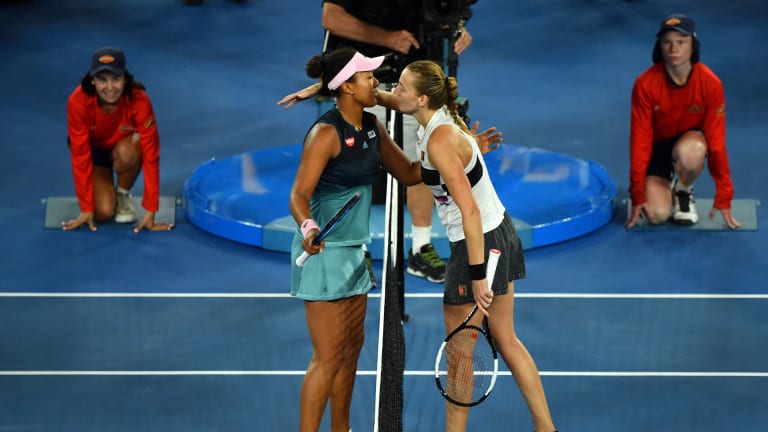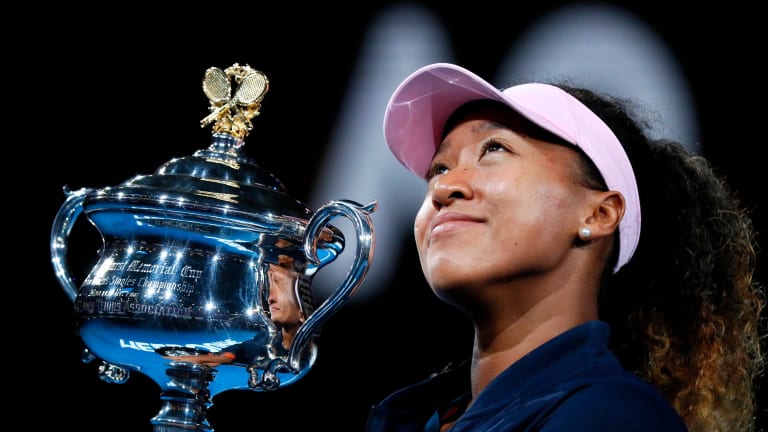Australian Open
Naomi Osaka shows you don’t have to talk the talk to walk the walk
By Jan 26, 2019Australian Open
Australia at Last: Reflections on a first trip to the AO
By Jan 29, 2025Australian Open
Alexander Zverev must elevate his game when it most counts—and keep it there
By Jan 27, 2025Australian Open
Jannik Sinner draws Novak Djokovic comparisons from Alexander Zverev after Australian Open final
By Jan 26, 2025Australian Open
Alexander Zverev left to say "I'm just not good enough" as Jannik Sinner retains Australian Open title
By Jan 26, 2025Australian Open
Jannik Sinner is now 3-0 in Grand Slam finals after winning second Australian Open title
By Jan 26, 2025Australian Open
Taylor Townsend and Katerina Siniakova win second women's doubles major together at the Australian Open
By Jan 26, 2025Australian Open
Madison Keys wins her first Grand Slam title at Australian Open by caring a little bit less
By Jan 25, 2025Australian Open
Henry Patten, Harri Heliovaara shrug off contentious first set to win Australian Open doubles title
By Jan 25, 2025Australian Open
Aryna Sabalenka takes a rare loss in Australian Open slugfest
By Jan 25, 2025Naomi Osaka shows you don’t have to talk the talk to walk the walk
With her stubborn, self-effacing title run in Australia, Naomi Osaka showed that humility can be an effective part of a champion’s game plan.
Published Jan 26, 2019
Advertising

Naomi Osaka shows you don’t have to talk the talk to walk the walk
© AFP/Getty Images
Advertising

Naomi Osaka shows you don’t have to talk the talk to walk the walk
© AFP/Getty Images
Advertising

Naomi Osaka shows you don’t have to talk the talk to walk the walk